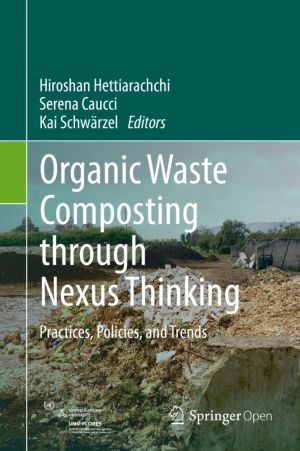Organic Waste Composting through Nexus Thinking
Practices, Policies, and Trends
by Hiroshan Hettiarachchi, Serena Caucci, Kai Schwärzel
DescriptionDetailsHashtagsReport an issue 






Book Description
Organic waste composting is another excellent example to demonstrate the power and the benefits of nexus thinking. Even though organic waste composting itself is not a new topic, those who want to start a new project or align an ongoing project with nexus thinking, find it difficult to gather the necessary information. With nine case studies from four continents, this book aims to fill above gap in literature. While current literature on composting is often found to be limited to either soil/agriculture sector or waste management sector, this book presents a combined point of view. This open access book starts with an introductory chapter that describes the need to bring the waste management aspects and soil nutrient management aspects of compost production into one integrated theme. The relevance of nexus thinking and the Sustainable Development Goals (SDGs) are also presented in this introduction. The first three chapters after the introduction covers composting from the solid waste management and its policy aspects, taking examples from three developing countries. The next three examples are mostly about the benefits composting can provide to the soil and agriculture. These examples are also from three developing countries, but with a mixture of urban as well as rural settings. Last three chapters present more insight into the latest developments taking examples from Europe, as well as new methods adapted from the traditional styles from Africa.This open book is licensed under a Creative Commons License (CC BY IGO). You can download Organic Waste Composting through Nexus Thinking ebook for free in PDF format (8.4 MB).
Book Details
Title
Organic Waste Composting through Nexus Thinking
Publisher
Springer
Published
2020
Pages
236
Edition
1
Language
English
ISBN13
9783030362829
ISBN10
3030362825
ISBN13 Digital
9783030362836
ISBN10 Digital
3030362833
PDF Size
8.4 MB
License

Related Books
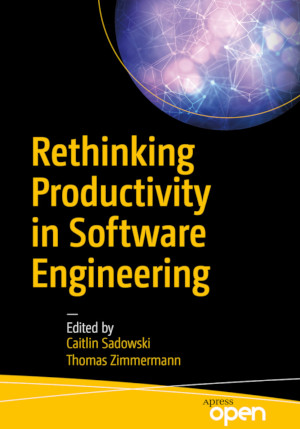
Get the most out of this foundational reference and improve the productivity of your software teams. This book collects the wisdom of the 2017 "Dagstuhl" seminar on productivity in software engineering, a meeting of community leaders, who came together with the goal of rethinking traditional definitions and measures of productivity.
The ...
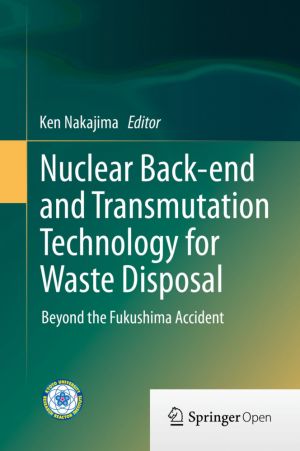
This book covers essential aspects of transmutation technologies, highlighting especially the advances in Japan. The accident at the Fukushima Daiichi Nuclear Power Plant (NPP) has caused us to focus attention on a large amount of spent nuclear fuels stored in NPPs. In addition, public anxiety regarding the treatment and disposal of high-level radi...

This book offers a comprehensive guide, covering every important aspect of computational thinking education. It provides an in-depth discussion of computational thinking, including the notion of perceiving computational thinking practices as ways of mapping models from the abstraction of data and process structures to natural phenomena. Further, it...
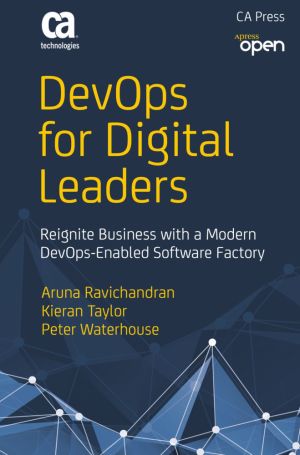
Learn to design, implement, measure, and improve DevOps programs that are tailored to your organization. This concise guide assists leaders who are accountable for the rapid development of high-quality software applications.
In DevOps for Digital Leaders, deep collective experience on both sides of the dev - ops divide informs the global thought l...

This book provides insight on current patterns of migration in Switzerland, which fall along a continuum from long-term and permanent to more temporary and fluid. These patterns are shaped by the interplay of legal norms, economic drivers and societal factors. The various dimensions of this Migration-Mobility Nexus are investigated by means of new...
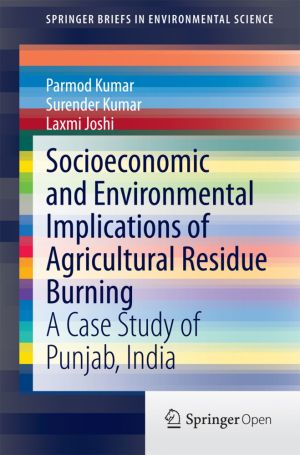
This book discusses the important issue of the socioeconomic and environmental impacts of agricultural residue burning, common in agricultural practices in many parts of the world. In particular, it focuses on the pollution caused by rice residue burning using primary survey data from Punjab, India. It discusses emerging solutions to agricultural w...

